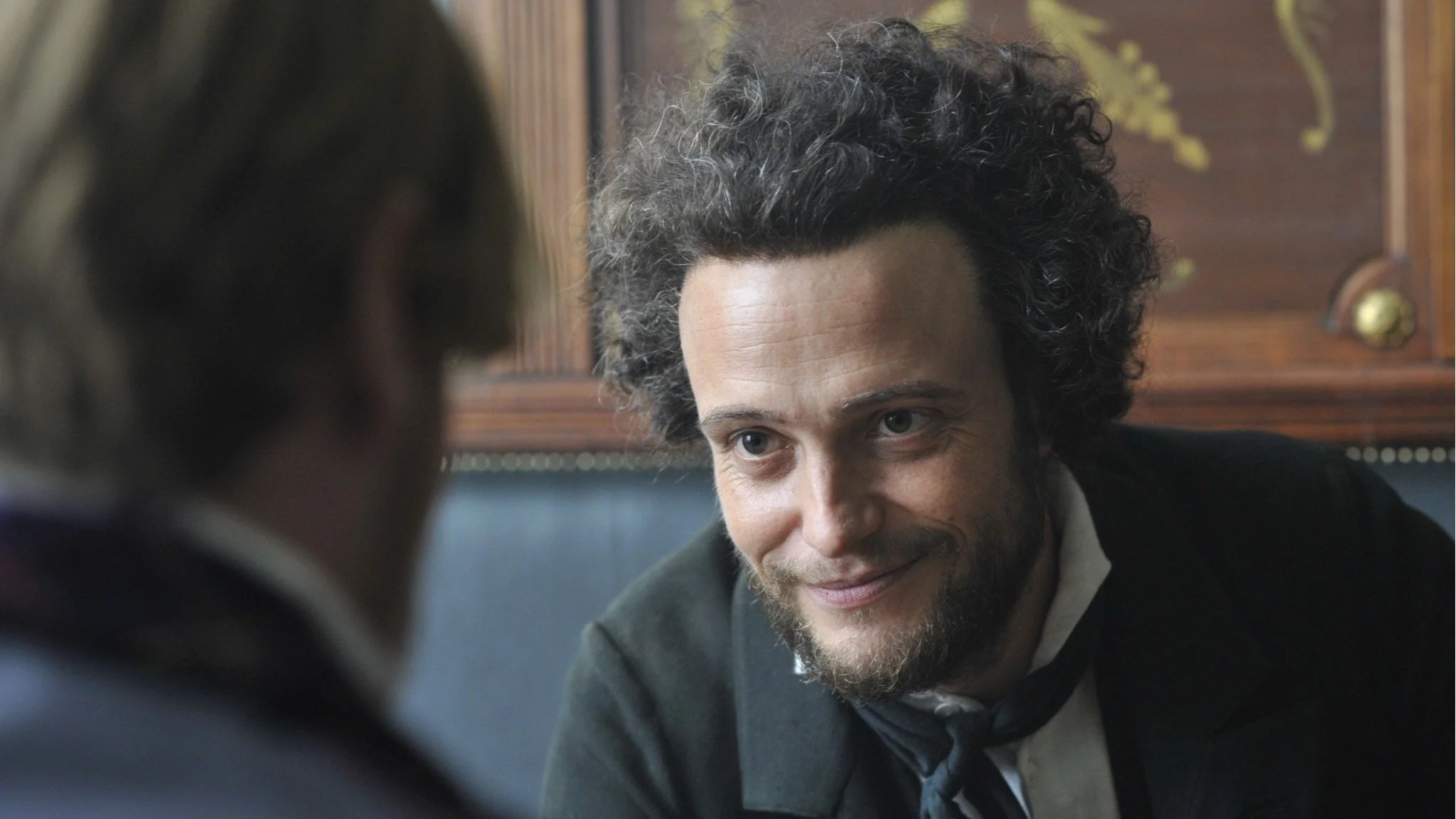The Young Karl Marx
A persuasive look at the years when Communism grew out of Socialism.
August Diehl
Born in 1953, the Haitian filmmaker Raoul Peck turned to features in 1987 and is now well established both in cinema and in television. Nevertheless, it took his unique film essay I Am Not Your Negro (2016) to make his name register significantly in this country. Now, working not for the first time with Pascal Bonitzer as his co-writer, he gives us this historical piece set in the years between 1843 and 1848. Its subject, as the title indicates, is indeed the youthful years of the impoverished Jewish writer Karl Marx (August Diehl), but hardly less central is the well-off German Friedrich Engels (Stefan Konarske) whose views conflicted with the outlook of his father, an industrialist running a mill in Manchester.
It was, of course, the shared political convictions of these two young men that brought them together when in their twenties. Peck’s film finds room to show us Marx’s wife, Jenny (Vicky Krieps, from Phantom Thread) and the Irish girl, Mary Burns (Hannah Steele), who would in time marry Engels. But all the same, the chief focus here is on the political issues. The two men are unquestionably the film’s heroes as it shows them arguing that the exploitative industrial age requires not improvement - as proposed by the likes of Pierre Proudhon (Olivier Gourmet) - but an attack on the system itself (both Marx and Engels believe that if philosophers had theretofore interpreted the world they now need to transform it).
At the film’s close there is a modern coda accompanied by Bob Dylan’s song ‘Like A Rolling Stone,’ but this move, possibly influenced by Lars von Trier’s brilliant use of David Bowie’s ‘Young Americans’ at the close of Dogville, quite lacks the power of its vocal predecessor. For the rest, this is a standard historical biopic, a genre relatively rare these days. However, last year we had Marie Curie: the Courage of Knowledge and you only have to compare The Young Karl Marx with that to be aware how superior this film is. It is well acted by all (with special credit going to Krieps for bringing so much life to a subsidiary role), convincing in its period setting (be it Paris, Brussels, Manchester or Cologne) and with an apt music score. As written by Bonitzer and Peck, these historical figures ring true. That said, the proud climax of the film is the issue of The Communist Manifesto and, in portraying the need for the proletariat to rise up against the bourgeoisie, the film’s appeal is geared very much to those who venerate Marx and Engels to the same extent that the filmmakers do. The political stance of the viewer will be highly relevant to the value they find in this detailed, intellectual take on the birth of Communism: its subsequent history is ignored as unimportant compared to the beliefs that inspired it.
MANSEL STIMPSON
Cast: August Diehl, Stefan Konarske, Vicky Krieps, Hannah Steele, Olivier Gourmet, Alexander Scheer, Hans-Uwe Bauer, Michael Brandner, Ivan Franek, Peter Benedict, Niels Bruno Schmidt, Marie Meinzenbach.
Dir Raoul Peck, Pro Nicolas Blanc, Robert Guédiguian, Rémi Grellety and Raoul Peck, Screenplay Pascal Bonitzer and Raoul Peck, Ph Kolja Brandt, Art Dir Benoȋt Barouh, Ed Frédérique Broos, Music Alexei Aigui, Costumes Paule Mangenot.
Agat Films & Cie/Velvet Film/Rohfilm/Artemis Productions/France 3 Cinéma-ICA Cinema.
118 mins. France/Belgium/Germany. 2017. Rel: 4 May 2018. No Cert.


